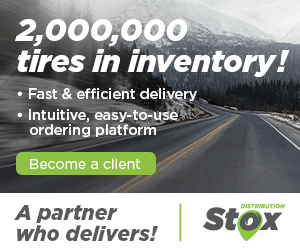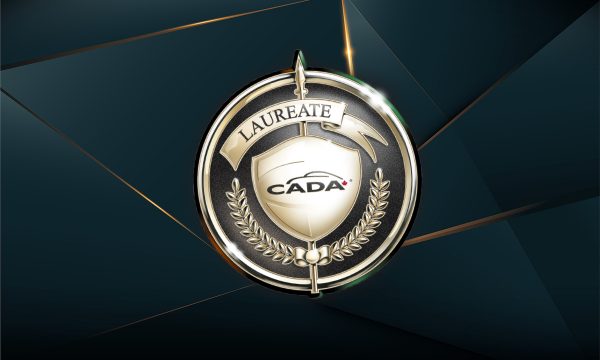The DMS is the ‘source of truth’ for your information. It’s that system of record, and it connects everything
The Dealer Management System (DMS) is a ubiquitous term for anyone working in auto retail. What does it mean today?
In some ways, the modern DMS can be seen to resemble The Borg from Star Trek, absorbing and integrating every technology in its path, from desking to F&I to Customer Relationship Management, to parts and service, to digital retail systems; or it can be seen as a collection of discrete capabilities, working together to make selling cars easier for the dealer and buying cars easier for the customer.
Canadian auto dealer reached out to a group of leading DMS companies working with Canadian dealerships to talk about what they think a DMS should be, and what the future of the technology might look like. Some firms come from the position of having built a system from scratch, using their own engineers to update and add capabilities as they see the need, and some companies grow by taking a core system and buying specialty subsidiaries that add capabilities.
For dealers, this means that there are a large number of DMS solutions out there, whether they like to build a bespoke integrated system from different providers, or if they want one whole seamless package.
The most important thing with a DMS is that it works, and is flexible enough to evolve with the business and with the industry, said CDK Global’s Vice President Greg Wallin. “I think if you go back, let’s say 10 or 15 years ago, a DMS was sort of a ‘necessary evil’. They handled the core functions of a dealership only. That has certainly changed. Now, a DMS can be anything provided by the CDKs of the world. I don’t know if the DMS itself has evolved if you look at it from a core perspective. But the other pieces of the business that interact with the DMS are now probably more of interest to dealers.”
The evolution has been going on for decades, said Wallin. “When I started 30 years ago, it was really just core parts and service, and accounting. Then maybe you added a sales application. Twenty years ago, we moved into automating the shop. We moved into doing things like bar coding for parts and adding a CRM component for follow up. Now dealers have to evolve to be able to meet the clients where they want to be met. And we use the term ‘omnichannel’ or ‘modern retailing’ when we talk about doing that from the retail side.”
CDK Global has grown through both internal development, as well as searching out organizations that are doing something well, acquiring them, and integrating them into their DMS. Bruce Johnson, CDK’s Sr. Director of Marketing and Sales Enablement, offers a useful definition: “The DMS is the ‘source of truth’ for your information. It’s that system of record, and it connects everything.”
So what does this mean? “At CDK we talk about connecting the dealer to the industry,” said Johnson. “That’s what we look at as the DMS doing. It manages connections with integration points to all the major OEMs, manages connections to other industry partners, and manages credit and compliance connections. Ultimately, it’s the infrastructure that creates the financial information that the dealership runs its business on.”
Companies like Quorum offer dealers a product suite, where customers can buy the whole system, or pick the Quorum products they want to fit their business needs. “The question dealers have to ask themselves is, does my DMS do everything well?” said Quorum’s President and CEO Maury Marks. “Or am I better served by having best-of-class third party products that meet my dealership’s needs, knowing they will get deep functionality with the third party products but that they may not be as integrated as the solution they would get from their DMS provider?”
Quorum followed a strategy to provide dealers with a best-of-class product suite with a DMS at the hub. They started by putting their resources into building the best core DMS. “We took a different approach to the market, building a DMS, and we focused on that. Then we built our own Sales CRM, mobile Service Lane, text/email messaging and reporting solutions. Because we only focussed on a few solutions, we built a lot of features that are in many third party products, and our solutions cost less money, and they are all beautifully integrated.”
Quorum then decided to grow through acquisitions. “Over the last five years we have acquired four companies, all with best-of-class solutions, and we have integrated those solutions into one product suite,” said Marks.
This approach puts the choice in the hands of the dealers and they decide which solutions they need and the ones they don’t. “Generally, it’s better for dealers to select solutions that meet their needs, and know that the ones they select have best-of-class functionality,” said Marks. “If all you do is get an integrated suite from your DMS provider and it doesn’t really have very deep functionality it won’t meet your business needs, and will not help you grow and operate your dealership.”
Keyloop is a large international company that has been in super-growth mode recently, having just acquired Canadian companies Serti and Rapid RTC, among other capabilities. Keyloop Canada’s Vice President of Sales, Martin Jalbert, told Canadian auto dealer that in this unusual economic climate of low inventories, but high margins, a good DMS uses data to create the best customer experience. “To ensure that dealers and OEMs can capitalize on the opportunity in the situation, customer engagement needs to be a top priority,” said Jalbert. “In today’s blended physical and digital world, delivering personalized, seamless, and transparent experiences across all aspects of the journey is essential to drive customer loyalty”.
Reynolds and Reynolds just opened up new offices in Canada, and they have also revamped their website and rebranded their logo, marking a period of transformation and positive change for the company over the last 12 months. Greg Uland is Reynolds and Reynolds’ Vice President, Brand Marketing, and he said that having an integrated system can help protect from an uncertain economic time, by being flexible.
“It’s interesting when you look at the pressures that dealers are seeing now and the things that they’ve seen over time, too. We can look back historically and see a lot of those things are really out of the dealer’s control,” said Uland. “So what really needs to happen is to focus on what the dealer can control. And what the dealer can do, is to provide value all the way around from the consumer, to the OEM. We’re really focused on enabling dealers to work a single deal from the first chat interaction online to a funded contract, cash in the bank.”
A good DMS will shift to focus on the departments that can be profitable, whatever the economic climate, said Uland. “When there’s low inventory, a dealer can use the DMS to facilitate increasing capacity in their shop without extending their hours even further than what they already have. So they can serve customers at all times. So things like 24-7 remote check-in, and drop off of keys, and things like that which are important to include in a DMS.”
For Uland, solving problems is the way they evolve their company and product. “You have a one-off problem that you’re solving, and if you solve it and it works well, figure out a way to incorporate it.”
Kevin Preston is the Vice President of DMS sales for PBS Systems, a successful and growing Canadian dealer tech company based in Calgary, and he agrees that a good DMS lets you nimbly move your business focus to the facets of operations that are most profitable at any given time. He said the EV transition will be one of those opportunities to be flexible. “So instead of coming in for an oil change, well, let’s talk tires, because EVs chew through tires, they’re heavy with lots of power. So, the tire conversation becomes a lot more active.”
A good DMS will let you easily change focus. “I have always felt we are well positioned because one of the strengths of PBS is the fact that we’re not a separate CRM with separate desking, a separate F & I, separate DMS. It truly is one platform. So what, how we adapt and how we’ve been adapting is more on the coaching of dealership teams, coaching of our customers.
This goes back to what Bruce Johnson from CDK Global was saying about the DMS being the “source of truth.” Because a good DMS collects data, and many are using artificial intelligence to learn to use that data to anticipate customers needs and wants, and can also go farther, said Preston, way beyond just the selling of the car.
“So you really need to start thinking of your customer as an enterprise-wide guest and create a lifecycle of that guest. So we sold a vehicle. That’s great. ‘How’s that working for you, Mr. Customer? According to our records, you might be starting to think about some new tires right now’. But that’s the easy stuff. You get the new people moving to your area, So let’s create a lifecycle from service, right? They got an oil change, you can help them look at an EV or something. Well, let’s create another lifecycle where we introduce them now to sales.”
Tekion is a big new entrant in the DMS space. Founded by Jay Vijayan, who was previously at Oracle and then the Chief Information Officer at Tesla, Tekion was the result of Vijayan seeking to fill in the DMS gaps he perceived between the customer, the dealer and the OEM.
Tekion’s Director, Solutions, Pieter Van der Griend explained to Canadian auto dealer that, “Jay’s vision clearly understands the need for the dealer, the brick and mortar, and he understands the needs of the OEM to improve the customer journey in terms of buying and servicing a car. So that’s sort of the base of his vision and the platform that he built called Tekion today. He brought over his several team members from Tesla to build the platform.”
Van der Griend said that Tekion’s focus on real-time information helps create the “seamless customer experience” that everyone has been talking about, from the online shopping experience to the service department, where they have introduced a new Vehicle Location Tracker to streamline the process of moving vehicles in and out of the dealership.
Another Canadian DMS and digital solutions company is laser-focused on the customer-facing processes, and has found a way to create an interface that works efficiently to bring in customers and guide them through the whole buying experience. 360.Agency’s founder and CEO Louis-Yves Cloutier thinks his company’s success comes from the fact that they focus on one area, and they do it the best. This is particularly important right now, when the tide is turning back to a situation where dealers are going to have to make more effort selling cars.
“Some dealers were a bit overconfident, because they didn’t need to do anything to sell a car,” said Cloutier. “They were more order takers in the last couple of years. Now inventories are coming back up, but customers are not as eager to change their vehicle because of interest rates and the global economy right now. A good DMS can offer dealers ways to interact with customers in a more friendly way, in a more transparent way.”
Meeting the customer where they want to interact will be key for all dealers in the foreseeable future. “As DMS players, we have to help dealers by offering applications that can streamline the sales process and offer a good customer experience. All in all that’s gonna be the word for the next couple of years, as in enhancing the customer experience using technology and the digitalization of the retail function of a dealer.”
All the DMS players interviewed were optimistic about the future, and value the role of evolving retail technology in the auto industry. Keyloop’s Martin Jalbert explains, “The pace of change within the automotive industry is incredibly fast. Therefore, products need to have the ability to evaluate data in real-time and provide dealers with an analysis that allows them to understand their customers more deeply, provide services to match, and access focused insights that can lead to better decision-making across the business”.
“We really value our dealership partners,” said Greg Uland. “We value our partnerships we have with manufacturers and we value our place in the automotive ecosystem.”












